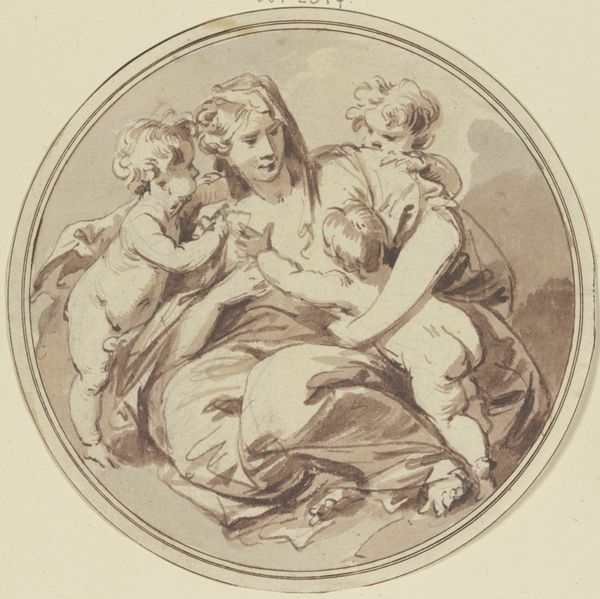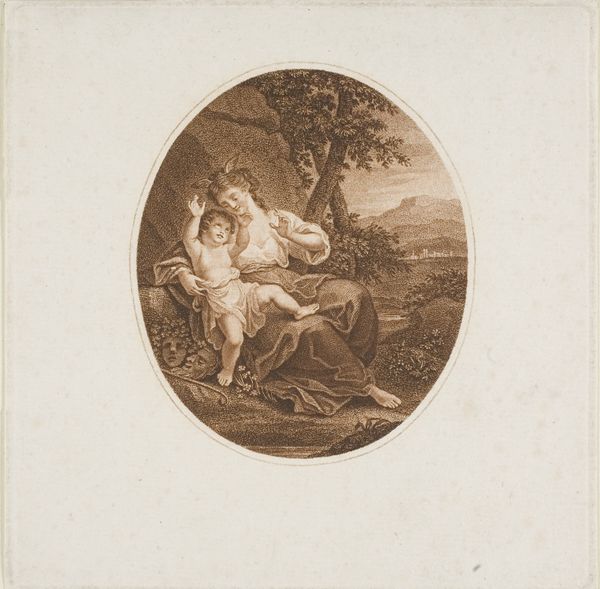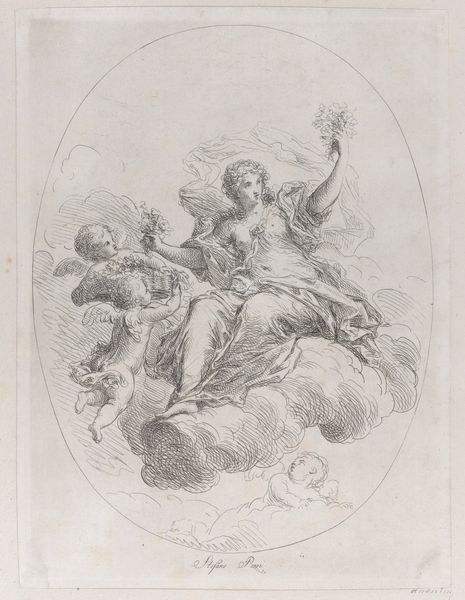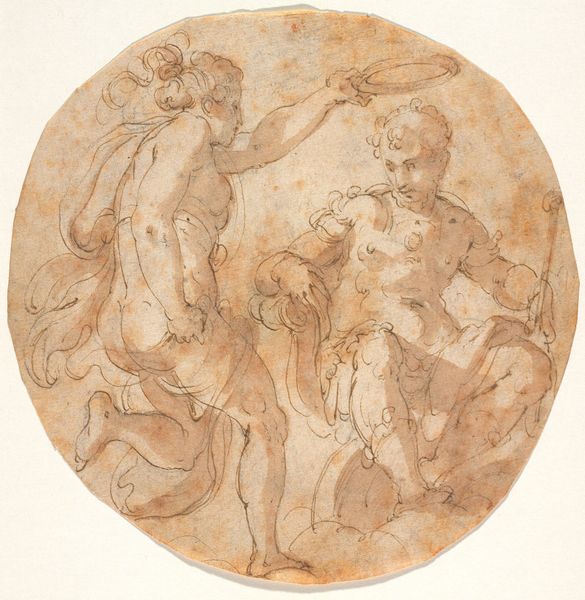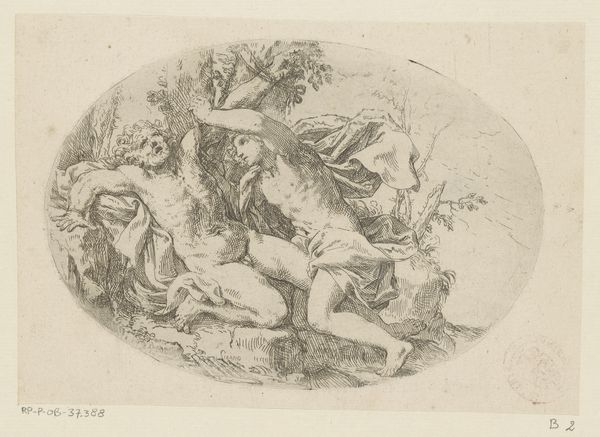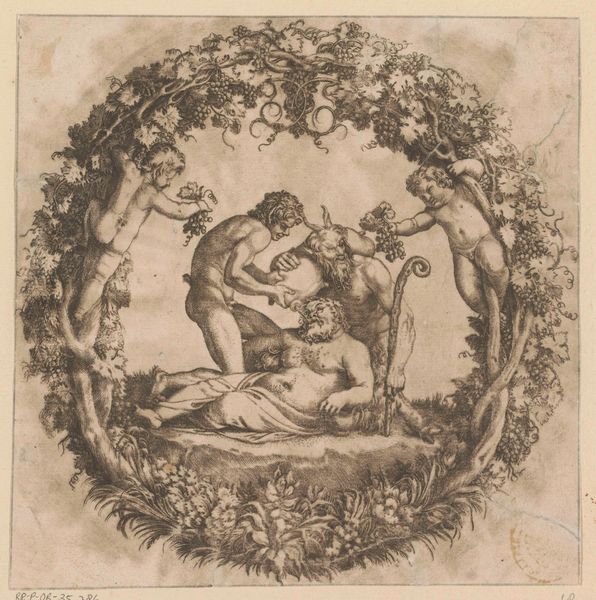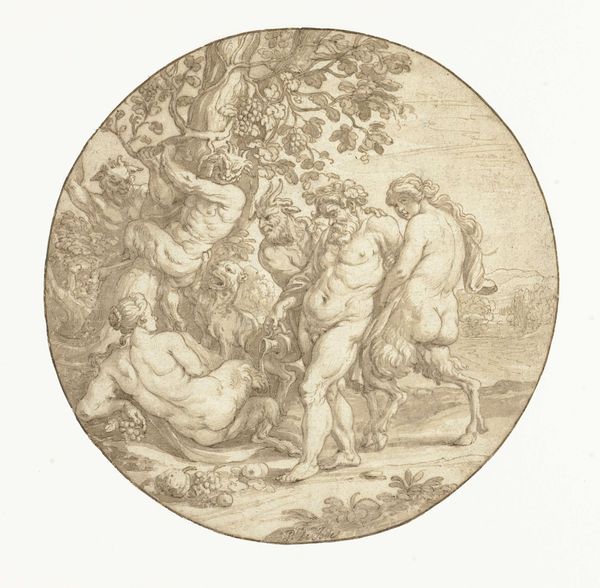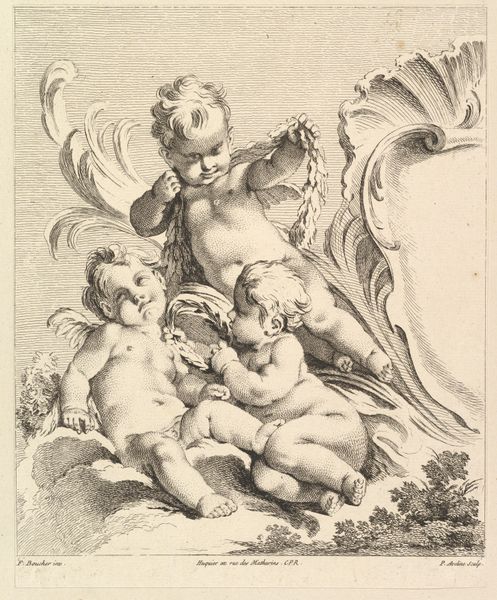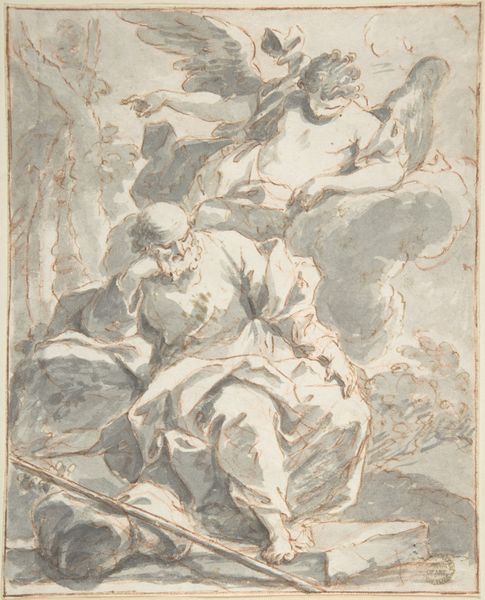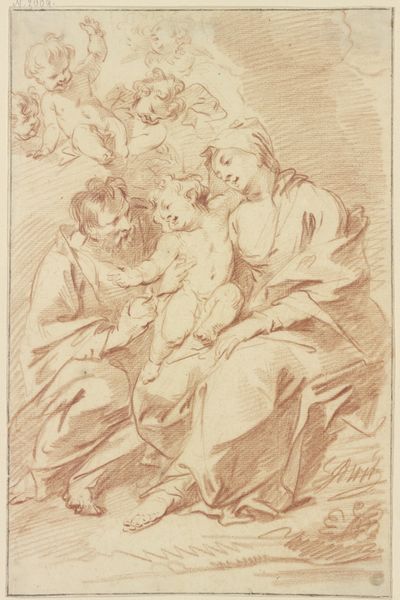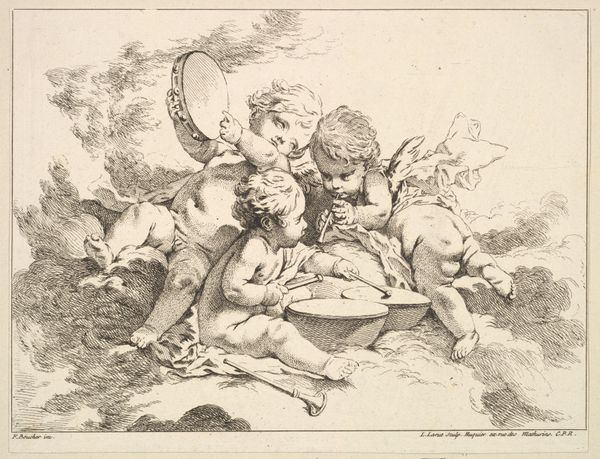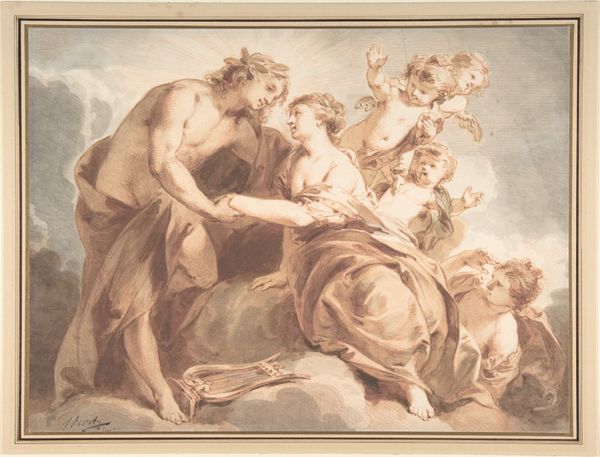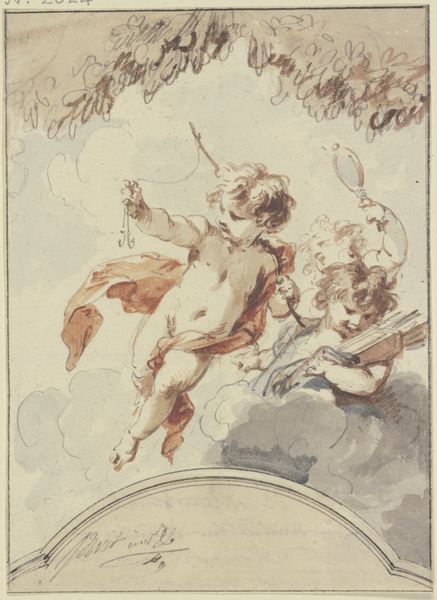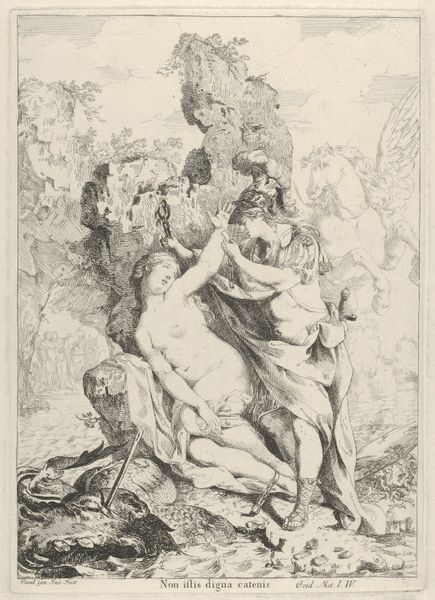
drawing, red-chalk
#
portrait
#
drawing
#
netherlandish
#
allegory
#
baroque
#
red-chalk
#
figuration
#
15_18th-century
Copyright: Public Domain
Jacob de Wit created this red chalk drawing, "Flora with two genii," in the 18th century, a period defined by the decorative exuberance of the late Baroque and the emergence of the Rococo style. De Wit, a Northern Netherlandish painter, frequently depicted mythological scenes, often featuring allegorical figures like Flora, the Roman goddess of flowers and spring. Here, she is attended by two winged putti, or genii, amidst swirling clouds. The rosy hue of the chalk lends a warmth to the scene. The idealized depiction of Flora and the cherubic genii reflects the era’s fascination with classical antiquity, filtered through a lens of courtly elegance. Representations of women at the time, as goddesses and nymphs, often served to embody abstract concepts, but also reinforced prevailing notions of feminine beauty and virtue. The emotional impact of the drawing resides in its idyllic vision of nature and beauty, offering a momentary escape from the rigid social structures of the time.
Comments
No comments
Be the first to comment and join the conversation on the ultimate creative platform.
